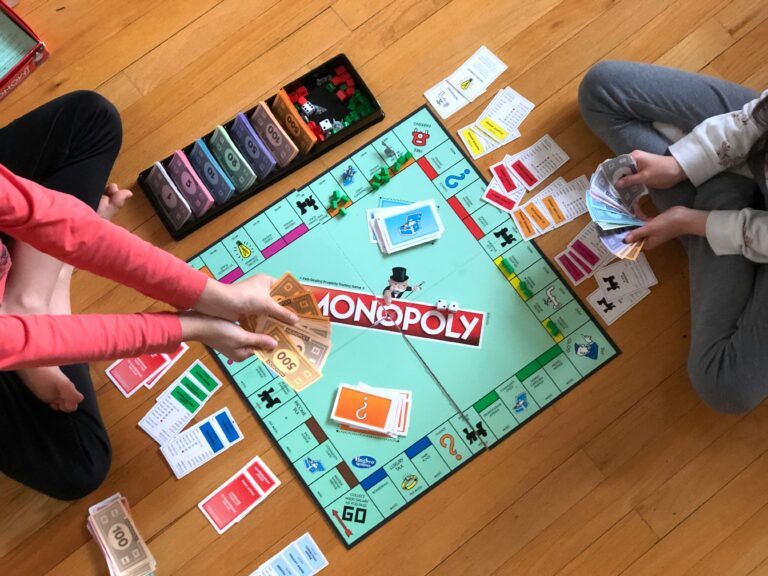Game Changers: Why Sports Matter for Our Societies 2024

In a world often fragmented by differences in culture, politics, and beliefs, sports game changers stand out as a unifying force. From the excitement of the upcoming 2024 Paris Olympics Games to the camaraderie on neighbourhood basketball courts, sports have the ability to bring people together, promoting inclusivity and solidarity.
At the inaugural Laureus World Sports Awards in 2000, former South African president Nelson Mandela delivered a speech that has since become legendary. In his address, Mandela expressed the impact of sports, proclaiming, “Sport has the power to change the world. It has the power to inspire. It has the power to unite people in a way that little else does. It speaks to youth in a language they understand. Sport can create hope, where once there was only despair.” These words resonate deeply with the essence of sports as a catalyst for change.
At its core, sports go beyond competition, serving as a platform for camaraderie, friendship, and inclusivity. Whether cheering for a team or joining recreational leagues, sports connect individuals, nurturing meaningful bonds that contribute to our communities’ social fabric, breaking barriers and encouraging a sense of belonging.
Cultivating Unified Societies Through game changers
Sports have the ability to transcend game changers geographical and cultural boundaries. Consider the FIFA World Cup, where nations from around the globe come together to compete on the football pitch. Regardless of nationality or background, fans unite in their passion for the game, sharing in the collective experience of sportsmanship.
For instance, ‘Football for the Goal’ is a United Nations (UN) initiative launched in 2022. It collaborates with football stakeholders and major actors to leverage the outreach power of football and the sport’s global footprint. This initiative works towards advancing sustainability, equality, human rights and climate action by promoting practices that support achieving the Sustainable Development Goals (SDGs) and related strategies that lead to behavioural change.
Furthermore, the United Nations’ International Day of Sport for Development and Peace, observed annually on April 6th, offers a significant platform to recognise the positive contributions of sports and physical activity in communities worldwide. The global theme for 2024, ‘Sport for the Promotion of Peaceful and Inclusive Societies,’ underscores the pivotal role of sports in fostering peace, harmony, and inclusivity on a global scale.

The UN has long acknowledged game changers the power and universality of sport, utilising it as a tool to unite individuals and groups. The organisation actively supports sport for development efforts, engages in events ranging from the global to grassroots levels, and spearheads its own sports-related game changers campaigns and initiatives.
Empowering Youth: Addressing Social Challenges in ASEAN
Sports offer young people a gateway to personal growth and development. Participation in sports not only boosts one’s physical health but also teaches valuable lessons in teamwork, discipline, and resilience. In the ASEAN region, where youth make up about a third of the population, the potential for positive impact is immense, with the youth population projected to reach over 220 million by 2038.
Last year, Indonesia took a step forward by launching its ASEAN Sports Zone in Situ Cipondoh, Tangerang. This initiative, piloted in Cambodia and Indonesia, provides communities with outdoor fitness equipment, aiming to promote healthy lifestyles and a sense of togetherness through community sports activities.
In Thailand, there are also initiatives that game changers leverage sports to build resilience and life skills, especially among at-risk youth. The Department of Juvenile Observatory and Protection of the Ministry of Justice in Thailand, along with NGOs and the private sector, collaborates to support juvenile rehabilitation through sport-based activities. Globally, there’s a growing recognition of the link between sports and crime prevention, with international stakeholders initiating projects to address this connection.
Through coaching and mentorship, sports empower young people to set goals, tackle obstacles, and gain confidence. Investing in youth sports programmes not only nurtures leadership but also paves the way for future success. Take, for example, PlayOnside, an NGO using football to educate and empower Burmese refugees and migrants in Thailand. Founded in 2013 and based in Mae Sot on the Thai-Burma border, PlayOnside shows how sports can be a catalyst for positive change in the lives of young people facing adversity.
Driving Sustainable Growth Through Strategic Sports Investment
Sports play a significant role in advancing human, game changers and social progress, as recognised by the United Nations in its 2030 Agenda for Sustainable Development. Member states emphasised that sports are crucial for promoting tolerance, respect, and peace while empowering individuals and communities, especially women and youth. Additionally, sports contribute to achieving health, education, and social inclusion goals.
Recent global data consistently shows a strong link between grassroots sport participation and sustainable development. Studies on the social benefits of sports reveal that investing US$1 in sporting interventions can yield between US$3 and US$124 in value. Despite these benefits, sports remain underutilised and undervalued as an area for investment.
Sports Matter for Life sports initiative advocates for multilateral sport funding through impact investment, prioritising outcome measurement to create social and economic returns. Sports Matter is working to increase public and private investments in sports for development, as highlighted in a recent report.
Sports present enormous opportunities for further development, including the capacity to connect various government domains effectively to meet sustainable development targets. However, these opportunities are currently underutilised.
As we navigate the challenges of an increasingly divided world, let us remember the lessons of game changers, sportsmanship, teamwork, and respect that sports teach us. By embracing the values of inclusivity and solidarity, we can work towards building a more just and equitable world, both on and off the field.
Thanit Apipatana is a Bangkok-based entrepreneur, investor, and startup advisor with a keen interest in venture building, real estate, F&B, sports and philanthropy. Mr. Apipatana has advised and invested in companies in the region, including Singapore-based proptech startup Mogul.sg and Thai-based Life Below Labs. As a thought leader, Mr. Apipatana shares his insights on entrepreneurship, F&B, education, sports and the social sector.






